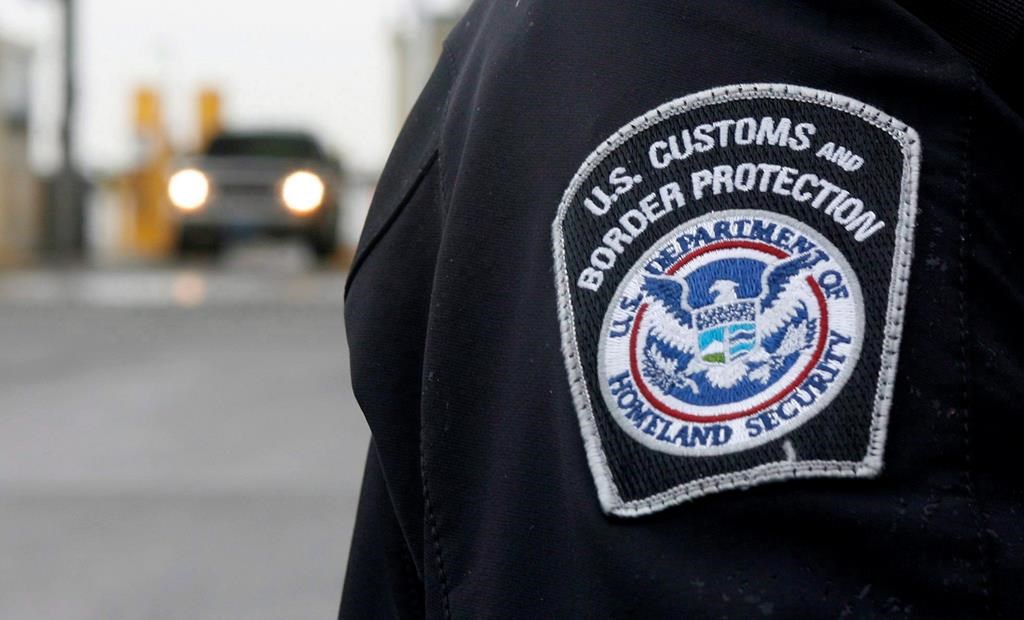Canada and the U.S. must work together to confront a surge of migrant encounters at their shared border, one expert says, particularly after a man was arrested in Quebec for planning to commit a terrorist attack in New York City.

Keith Cozine, an associate professor of homeland security at St. John’s University in Queens, N.Y., says while the issue may not yet damage the Canada-U.S. relationship, a lot depends on how it is politicized in both countries in the coming months.
“I think (the arrest) shows the importance of, number one, intelligence being the first line of defence when it comes to issues with this, but also the need for cooperation by these two security partners but also economy partners,” he told Mercedes Stephenson in an interview that aired Sunday on The West Block.
Canada’s immigration system is under renewed scrutiny after a Pakistani citizen, Muhammad Shahzeb Khan, was arrested last week in Quebec as he was allegedly about to cross the border to carry out an ISIS terrorist attack targeting Jews in New York City.
According to U.S. prosecutors, Khan allegedly wrote in online communications that “if we succeed with our plan this would be the largest Attack on US soil since 9/11,” referring to the Sept. 11, 2001 attacks.
Immigration Minister Marc Miller said Tuesday that Khan, who the U.S. had been investigating since last November, received a student visa in May 2023 and arrived at Toronto’s Pearson airport the following month.

The government was already facing questions over how security screening failed to flag a father and son from Egypt, Ahmed and Mostafa Eldidi, charged in July with allegedly plotting an ISIS attack in Toronto. The House of Commons public safety committee is investigating that matter and has been asked to consider a separate probe into Khan’s entry into Canada.

Get breaking National news
Those incidents come amid a dramatic rise in encounters by U.S. Border Patrol at the northern border, which has caught the ire of U.S. conservative politicians who have made immigration a top campaign issue.
There have been 19,498 encounters of migrants seeking to enter the U.S. from Canada in the most recent fiscal year to date, between October 2023 and July 2024, according to the U.S. Customs and Border Protection agency.
That’s a 95-per cent increase from the previous full fiscal year. When comparing the same 10-month period, the number jumped 155 per cent year-over-year.
In the 2022 fiscal year, the CPB encountered just 2,238 migrants at the northern border.
The numbers are just a drop in the bucket compared to those at the U.S. southern border with Mexico, which has seen 1.4 million encounters so far this year. But southern border encounters have dropped dramatically since 2023 — from more than two million — at the same time northern encounters are on the rise.
Still, Cozine says the southern border will likely continue to overshadow the situation up north among Republicans and other American immigration critics — though he added that could be at the detriment of northern border security.
“The U.S. authorities are constantly sending officers and other personnel from all around the country to the southern border, but they’re not giving that same priority to the border between the United States and Canada,” he said.

Canada and the U.S. have sought to improve their cooperation on cross-border issues like migration and crime, particularly under the Biden administration.
The two countries last year expanded the Safe Third Country Agreement across the entire shared land border, in an effort to deter irregular migrant crossings at unofficial entryways like Roxham Road. The allies have also revived the Canada-U.S. Cross-Border Crime Forum, which allows officials from both countries to discuss joint efforts to crack down on firearm, human and drug trafficking among other issues.
But Cozine says more work is needed, particularly on the Canadian side, to improve security screenings and intelligence gathering to prevent potential attacks.
“I think there is some truth to the idea that screening at Canadian ports of entry are a little bit lax when compared to United States,” he said.
He highlighted airports and the student visa application process that Khan was allegedly able to slip through as areas in need of improvement.
However, he said he didn’t share concerns over the fact that U.S. intelligence services alerted Khan to Canadian authorities, rather than domestic agencies like CSIS.
“When you look at the amount of money that the United States and U.K. spend on their intelligence apparatus, and the fact that within the Five Eyes and other international partners we are sharing this intelligence, (that) could kind of be viewed as a success rather than a failure,” he said.

Former U.S. president Donald Trump said in an Aug. 22 interview with Fox News that the “invasion” of immigrants into the U.S. over its southern border is now “starting at our northern border also, through Canada.”
Trump is vowing a sweeping crackdown on immigration, including mass deportations, if he wins November’s presidential election.
Cozine said Trump’s mention of Canada may be “just a political statement, rather actually looking at it as a high priority.”
“In Canada it’s a much larger issue, because of our trade relationship and on other economic issues as well,” he said.
Other Republicans have also sought to highlight the issue at the northern border.
A Northern Border Security Caucus was formed by U.S. House representatives last year, and a GOP congressman introduced a “Remain in Canada” bill in March that would replicate Trump-era measures that forced asylum seekers to stay in Mexico until their applications were approved — a process that can take several months.
— with files from Global’s Stewart Bell








Comments